Gentlemen’s Guide: Bangkok’s 5 Best Barber Shops
These top 5 barber shops in Bangkok are where gentlemen can elevate ...
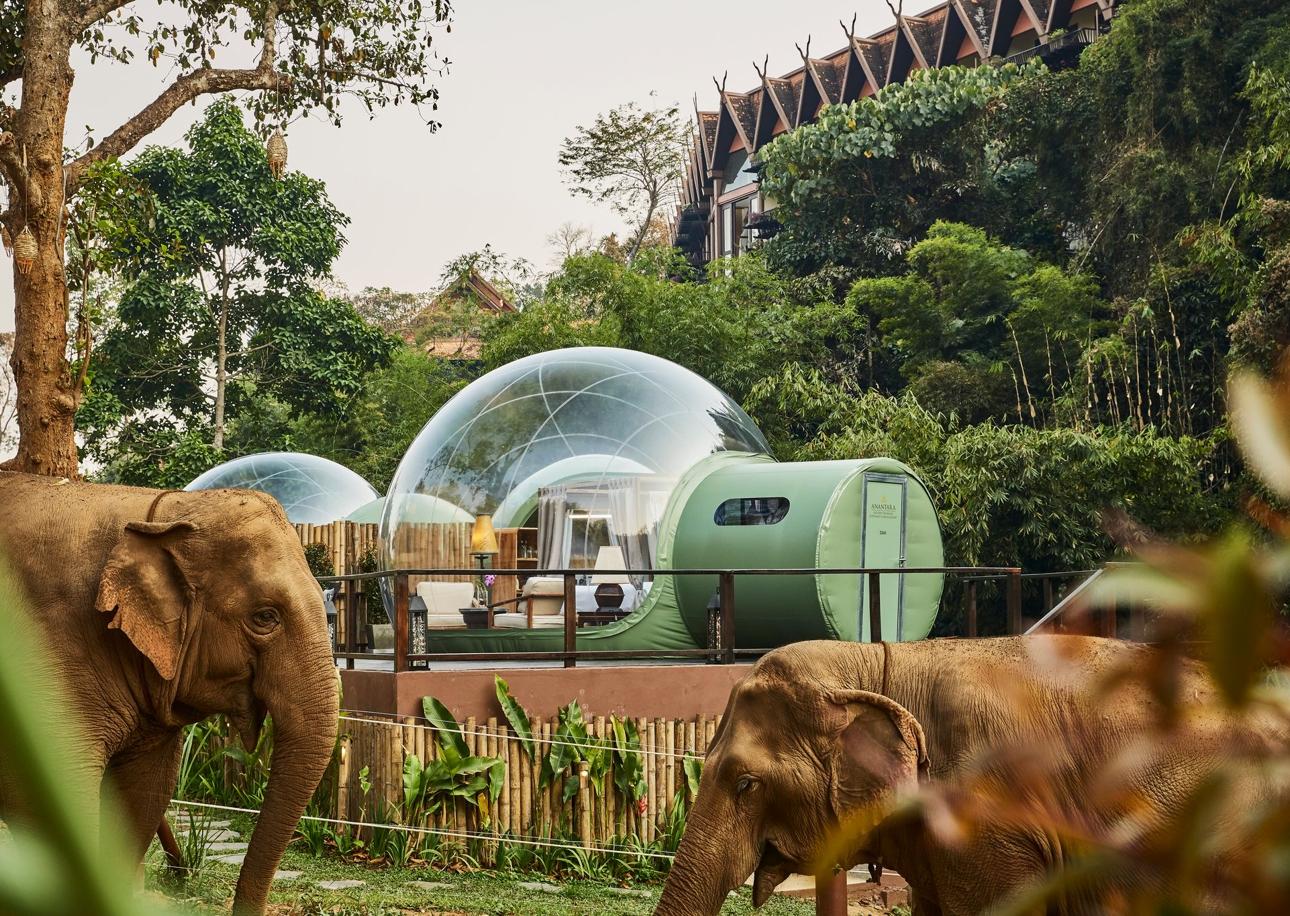
As a Bangkokian, I see holidays as a change not just in geography, but in values and practices too. While the capital city may be slow to adjust to our sustainable reality, many hotels and holiday destinations in Thailand have already been catering to the future we all want to see. But how many actually understand the real issues?
In a time when the word “sustainable” has become so widely—and perhaps too liberally—applied, we start to question the true intentions and efforts of the institutions that apply it. When it comes to hotels, it’s no longer enough to reduce the amounts of single-use plastics or wash cycles. These are the bare minimum we expect to see in any hotel today.
It’s time to get creative. For me, a truly “sustainable” hotel should constantly be looking for new approaches to reduce their impact on the environment. Sustainability is so much more than ticking a few boxes—it’s thinking outside of the box, too. The following list is a selection of hotels carving new paths, putting up outstanding efforts, and creating exemplary sustainability initiatives:
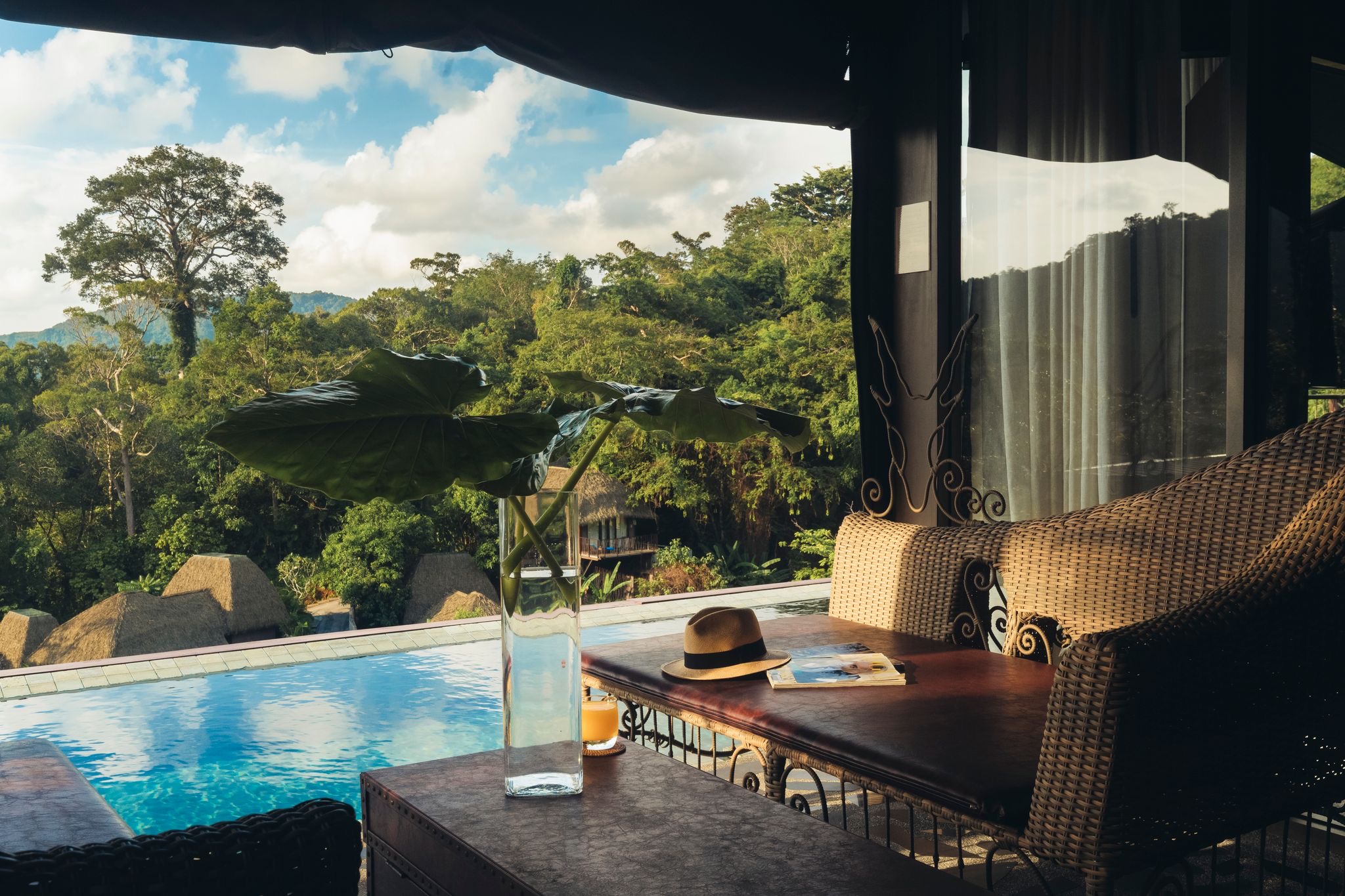
Sustainability is inseparable from the Keemala brand. A perfect example of how luxury and eco-consciousness go hand in hand, Keemala takes significant steps to not only care for their guests, but involve them in their sustainable practices. Guests can trace the ingredients on their plates back to their local sources, while knowing that thoughtfulness and care have been put into every dish. Keemala sources 50% of their herbs and vegetables from their own organic garden, and works to reduce food waste by donating surplus to disadvantaged communities. Most impressive is the fact that Keemala relies completely on its own water source, and doesn’t tap into the already-stretched public water supply. Plus, all the water used here is recycled for gardening and landscaping.
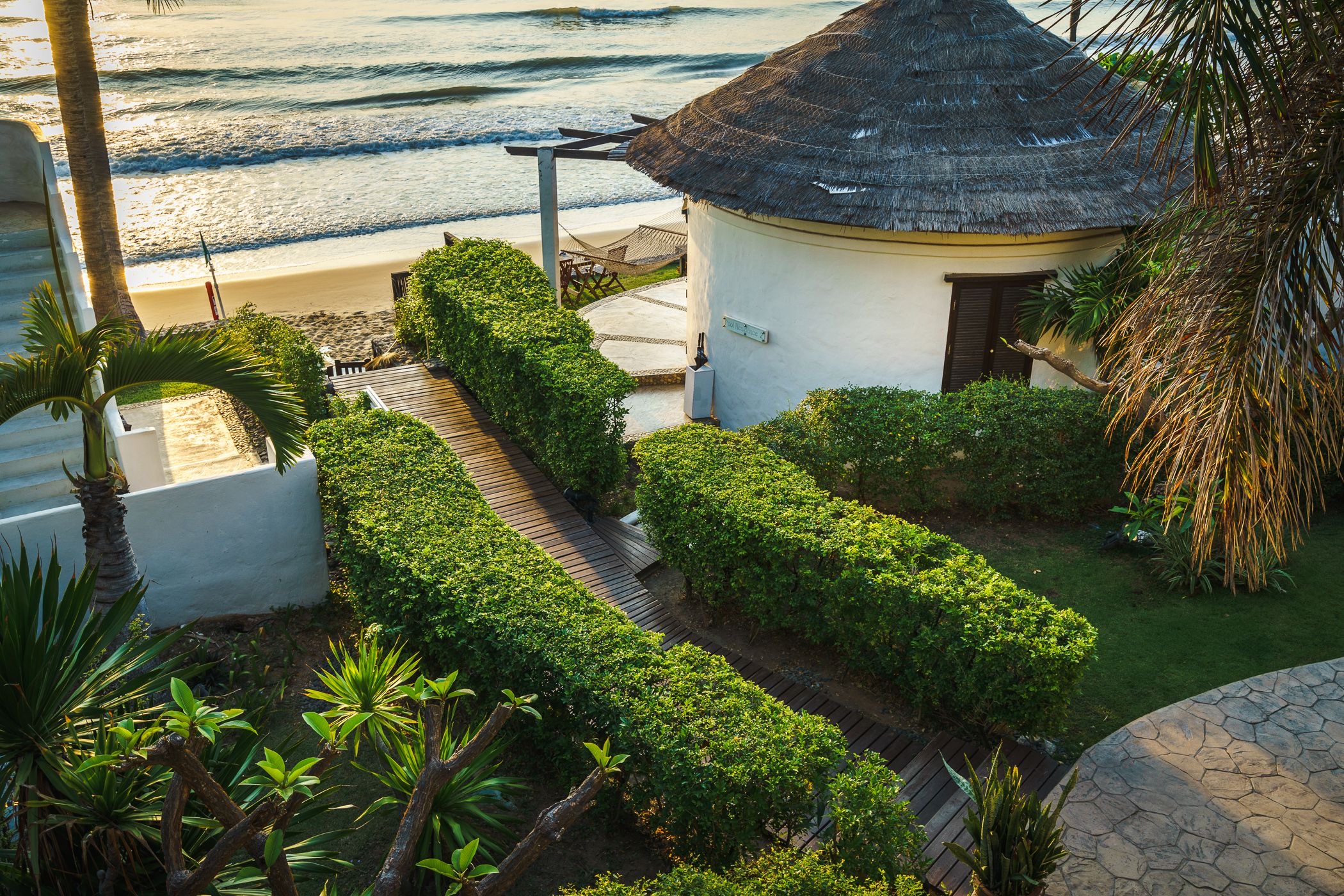
The Beckhams have been known to go the extra mile to come here and enjoy the facilities that place great focus on wellness and sustainability. With these two as pillars for the resort’s philosophy, Aleenta’s axiom ‘you reap what you sow’ manifests itself quite clearly. The launch of their ‘Carbon Free Cooking’ is an industry-leading initiative where almost all produce is sourced from the property’s organic farm and served as the finest gourmet cuisine. The initiative also includes a community garden where locals can take what they like and pay it forward via replanting. Aleenta’s attention to detail when it comes to sustainable practices has been recognised internationally, earning them the title ‘Best Sustainable Hotel (Thailand)’ at the International Hotel Awards.
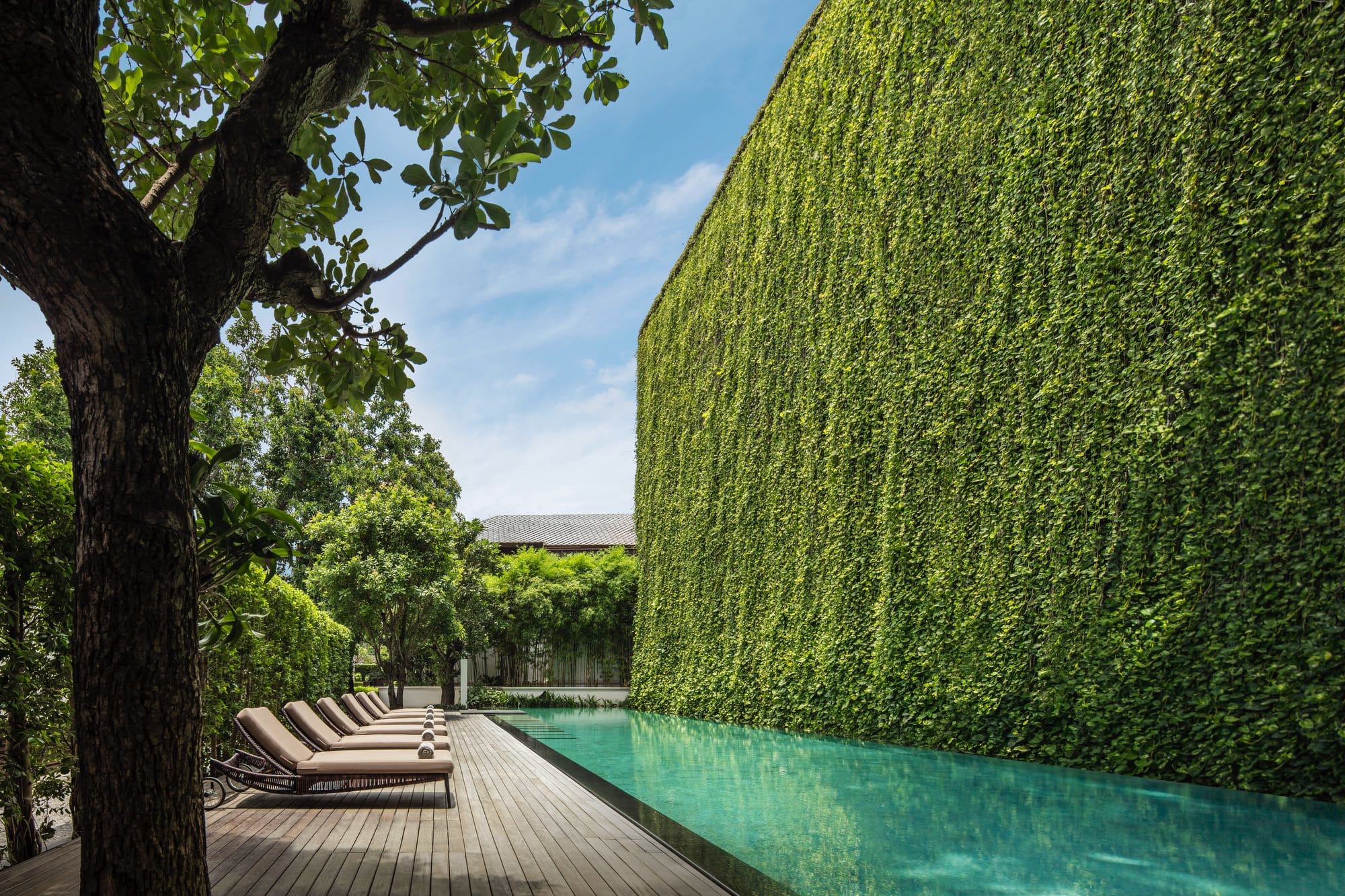
From basic measures like reducing single-use plastics, to also having intelligent AC systems for reducing energy consumption, 137 Pillars sets a high minimum standard when it comes to sustainable practices. The luxury boutique hotel also hosts an ever-expanding vegetable and herb garden, which produces more and more of the ingredients for the restaurant and bar. For any produce they do need to outsource, suppliers are given reusable mesh bags to adhere to the brand’s no plastic packaging policy. Even in the unseen initiatives, 137 Pillars places emphasis—including hiring an internationally-acclaimed mosquito expert to show the property how best to sustainably limit breeding areas without the use of chemicals. This also means fumigation is required a lot less frequently.
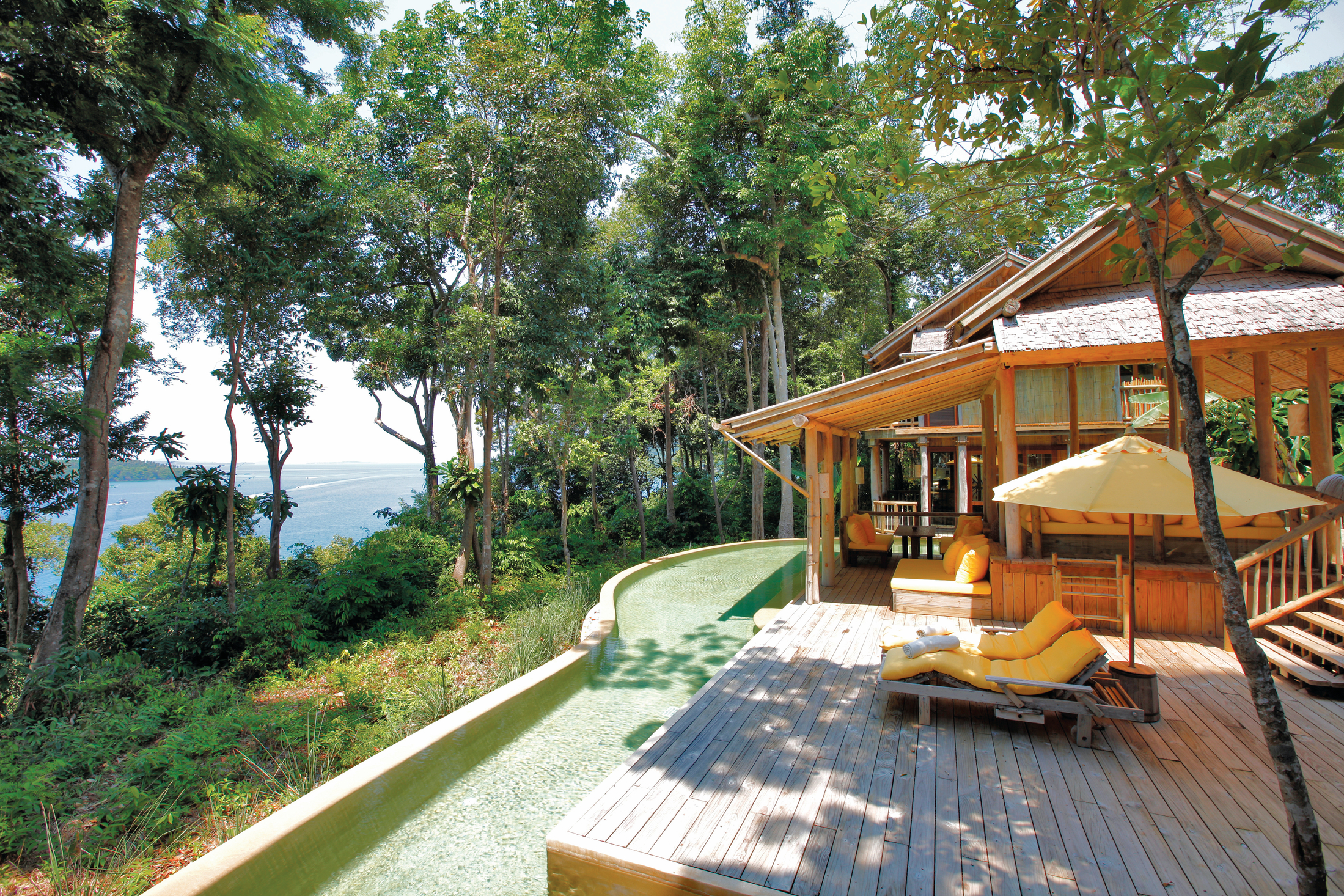
There are resorts that follow trends, and resorts that set them. Soneva Kiri is a prime example of the latter, having been way ahead in environmental awareness and initiatives throughout their history. The resort had already banned the use of plastic straws back in 2008, as well as imported bottled water. All their water is now filtered, mineralised, and bottled on-site. The resort also recycles 90% of its waste—including leftover food, which is composted for use in their organic vegetable gardens. But Soneva shows their genuine passion for sustainability by not limiting their initiatives to just the resort—they also contribute to wider initiatives to support local communities, such as subsidising world-leading environmental projects like mangrove conservation and seagrass restoration. This awareness and care for issues in the wider community place Soneva above other operators on the sustainability scale.
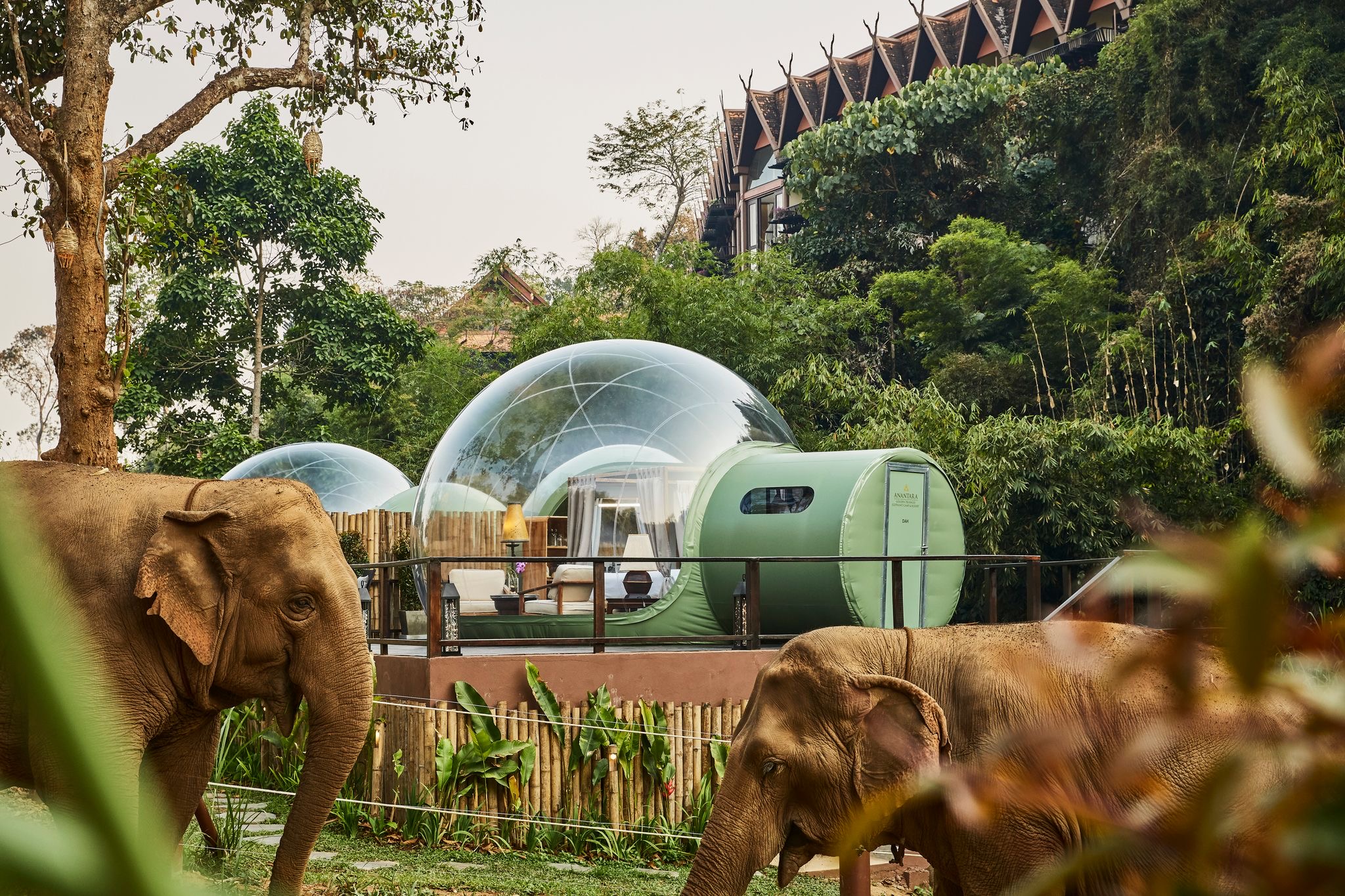
With great surroundings comes great responsibility. When you place a luxury resort in a location that is so rare and spectacular in both ecology and landscape, you’re faced with a mandate to nurture your host environment. Few other hospitality groups could understand this as well as Anantara, who have specifically chosen some of the world’s most beautiful locations for their homes. The Golden Triangle Anantara in Chiang Rai is just one example. On top of taking basic sustainability measures in the everyday running of the resort, as well as more extensive ones (they have long operated solar-powered irrigation pumps and water preheaters), Golden Triangle is famously home to endangered elephants. Offering a sanctuary from city streets and mistreatment, they work closely with scientists, mahouts, and guests to create a sustainable future for Thailand’s beloved creatures.
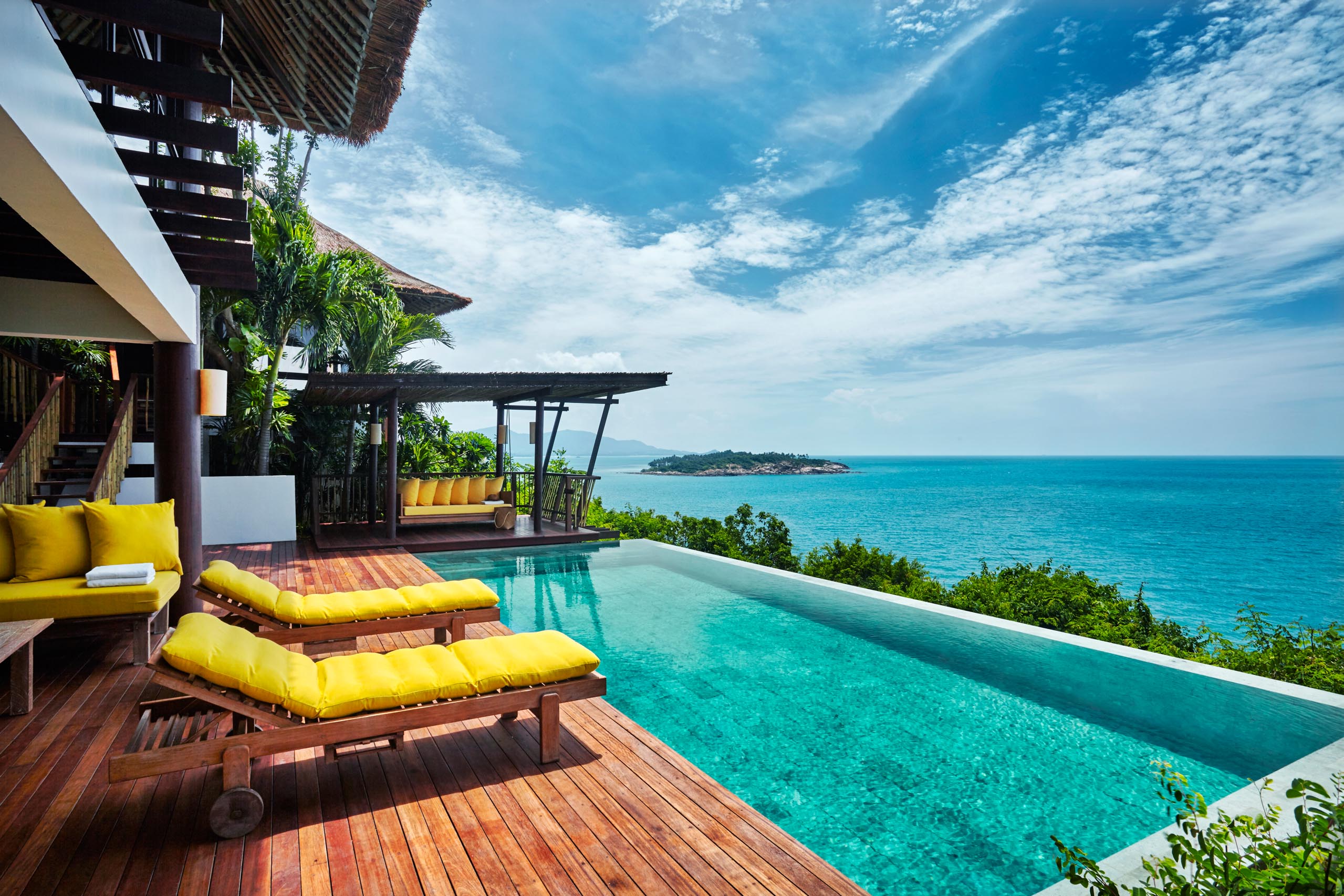
Always one to be set apart from others, Six Senses have a passion for combining their commitment to sustainability with their dedication to creating unique experiences. The resort’s “Farm on the Hill” is their latest sustainable initiative to create this win-win proposition. Besides converting their waste products into valuable compost, the farm is also a charming place for guests to visit and explore. Within the resort you’ll also discover innovative “precision air conditioning”—a system that precisely controls the temperature and humidity levels within the rooms. This absorbs hot air and releases cool air in return. The absorbed heat is then stored and later used to heat the room’s water. But Six Senses’ passion for environmental sustainability extends to the wider community too: staff (as well as guests) can join in beach cleaning activities, tree-planting, and supporting local markets.
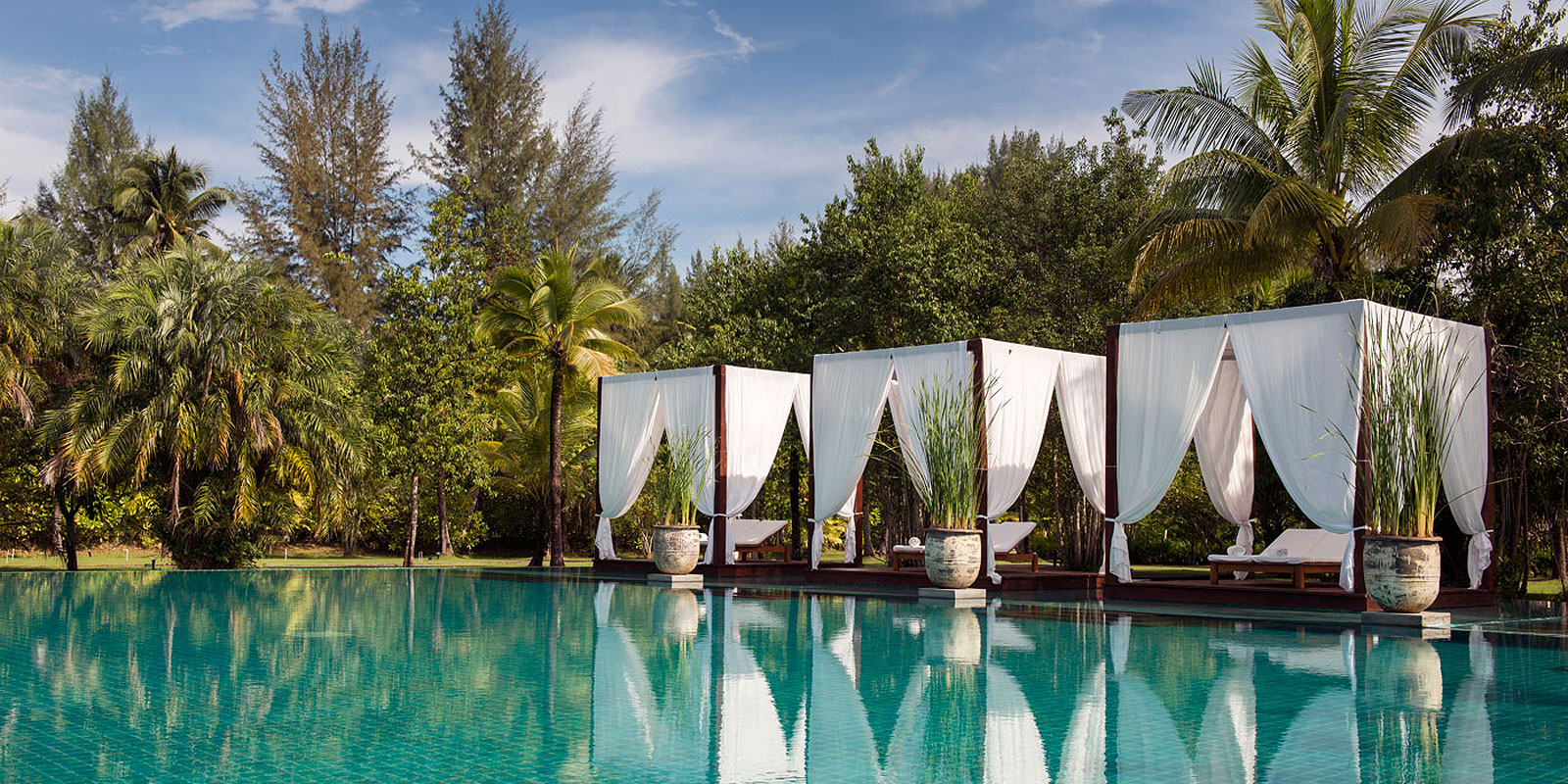
It mustn’t be forgotten that sustainability applies to the wellbeing of communities as much as the environment. Recognised internationally for their great efforts to support both, The Sarojin is community-based tourism at its best. Establishing their own Sarojin Khao Lak Community Fund, the resort works with orphanages, animal welfare societies, and local construction sites to conserve and improve the lives of their local communities. In order to reduce the amount of plastic waste on the beaches, The Sarojin has also replaced plastic straws with lemongrass alternatives, and invested in their own on-site water bottling plant. All guests are given refillable glass bottles with water from this on-site plant. Turning eco measures into fun, wholesome activities, The Sarojin encourages their guests to join in with initiatives too.
These top 5 barber shops in Bangkok are where gentlemen can elevate ...
Wandering around the globe, try out the signature tastes of cultures across ...
Pets, as cherished members of our families, deserve rights and protections that ...
Sailorr and Molly Santana’s black grills fuse hip-hop swagger with homage to ...
What happens when Bangkok’s dining scene expands beyond the familiar. Ethnic border ...
The dark elegance of Frankenstein’s costume design reveals itself. Gothic and romantic ...
Wee use cookies to deliver your best experience on our website. By using our website, you consent to our cookies in accordance with our cookies policy and privacy policy